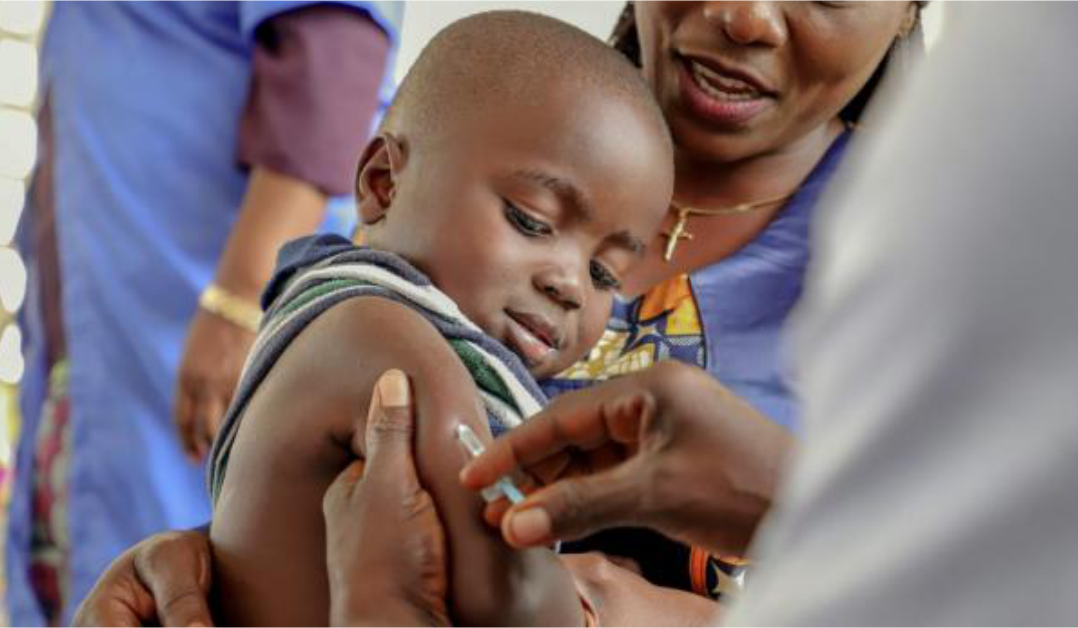Nigeria is gearing up for what it describes as Africa’s largest integrated health campaign.
Starting October 6, 2025, the federal government will roll out the measles-rubella (MR) vaccine into the national routine immunisation schedule, targeting an unprecedented 106 million children aged nine months to 14 years.
The campaign will be categorised in two phases: the first involving 63 million children, followed by another 43 million.
According to officials, the aim is to achieve 95% coverage – a number set to bring transmission to an end as much as safeguard even the hardest-to-reach communities.
Measles has long been a prevalent disease among children, associated with fever, rashes, and severe respiratory complications that prove fatal. Although less severe, rubella also poses risks.
When pregnant women become infected with the disease, their babies are in danger of contracting Congenital Rubella Syndrome, or CRS, which can lead to blindness, deafness, heart abnormalities and long-term disability.
Globally, estimates show that around 100,000 children are born with CRS every year, with Nigeria among the most affected countries.
The upcoming rollout represents more than a short-term health push. For the first time, the measles-rubella vaccines will be permanently included in Nigeria’s routine immunisation system, as well as older vaccines such as polio and BCG.
Similar immunisation schemes
The campaign also coincides with the scaling up of the Human Papilloma Virus, or HPV, vaccine for girls aged nine and the expansion of “second year of life” activities, creating a multi-layered effort designed to strengthen child and adolescent health.
According to officials, vaccination posts will be set up in schools, markets, worship centres and community hubs nationwide.
What is different about this campaign is its size as much as its intent to build on lessons from previous public health efforts.
Nigeria has a proven track record of mobilising millions of citizens to support immunisation campaigns, notably in the fight against polio.
Integrated campaigns in other parts of Africa have proved that combining catch-up vaccination and routine services is capable of delivering long-term impact.
In Benue State, for example, health authorities have already mapped out plans to vaccinate over 2.8 million children as part of the MR rollout, drawing on community health workers and grassroots sensitisation.
Despite this, the scale of the task underscores what is required.
Nigeria’s routine immunisation coverage has often levelled off at 50 to 60%, leaving millions of children vulnerable.
Remote and conflict-stricken zones remain inaccessible, and health systems continue to face challenges in logistics, human resources and vaccine storage.
The October launch represents both a massive logistical test and an opportunity to set a new direction for immunisation in the country.
The campaign also offers a chance to reinforce public trust in immunisation, which is an important step after decades of scepticism fuelled by misinformation and disorganised service delivery.
With coverage goals reached, the campaign would significantly lower child deaths and disabilities caused by these ailments and potentially become a model of how mass health interventions can bring structural transformation.
For families, it is an immediate promise fulfilled: fewer children lost to preventable disease, fewer families struggling to bear the cost of disability, and more families able to look to healthier futures.
For Nigeria, the intervention signals that, even in difficult economic times, national systems can be brought to scale to protect the most vulnerable.
Summary not available at this time.






